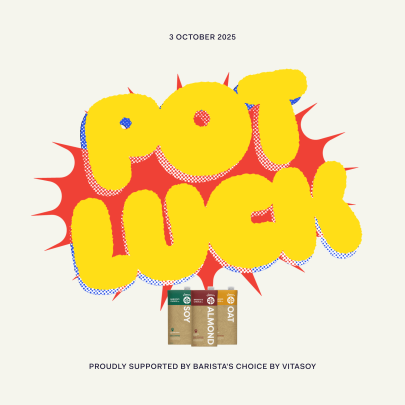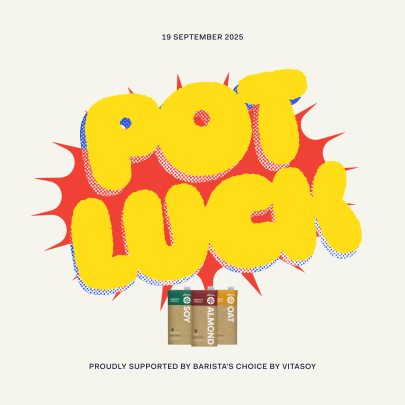Feb 16, 2021 Food
Can $5 flat whites sustain an industry?
When David Huang started as a barista in 2000, a flat white cost $4, and he earned $18 an hour. Two decades on, it’s easier than ever to find a world-class cup of coffee in Auckland, but, after inflation, its price has gone way down, along with the wages of the person who makes it. No matter the cafe, a regular flat white costs no more than $5, while baristas and service staff often earn less than a living wage.
The cost of making a good coffee has gone way up over the past 20 years, as has the cost of living. But while lower prices might be nice for customers, for the industry and the people who work in it, they’re not sustainable. As Huang, now the owner of Society Coffee roasters and a board member for the New Zealand Specialty Coffee Association, describes it, “we are not in a great cycle right now”.
As businesses at all stages of the coffee industry are squeezed between rising costs and a product with a price that barely moves even with inflation, it’s the people who make and serve your morning brew that are forgotten. Coffee plays a central role in the lives of many New Zealanders, but the labour that gets it to your table is consistently underpaid and undervalued.
There’s a lot that goes into one cup of coffee. Beans are sourced from the other side of the world and roasted locally, then infused with water and maybe combined with steamed milk (just the way you like it) by a well-trained, experienced person operating a complicated piece of machinery. (Anyone who’s tried to get latte art out of their off ice coffee machine can tell you that it isn’t as easy as it looks.) And that person, whom you rely on to get through the day, is, most of the time, not properly paid for that work.
I’ve worked front-of-house roles, including as a barista, in hospitality for six years, and I’ve never earned a living wage for that work. Chloe Ann-King, of hospitality advocacy group Raise the Bar, says that’s not unusual. She’s worked in the industry almost a decade longer than I have, and still gets offered poverty wages, at minimum wage or a dollar over.
Working in hospitality is still not seen as a real career in New Zealand. It’s considered a job you do while you study, or travel, before you find a proper job. And that attitude is self-perpetuating. If the work is undervalued by customers, and underpaid by employers, people don’t stay in the industry, so the product suffers, and then that product is further undervalued by customers. And so the cycle will repeat unless something changes.
An obvious thing that needs to change is the price of the product. If you buy a flat white for $5 at a cafe that uses good beans, the price is set based on customer expectations, not the financial realities of making it. Nearly 40% of that $5 goes towards the cost of the raw materials: beans, milk, a takeaway cup. That doesn’t leave a lot of room to cover all of the other expenses that come with running a cafe, so, too often, operators are forced to cut the one cost they can at least somewhat control: the price of labour. “Baristas and cafe staff get paid really badly,” Ollie Simon, former co-owner of Simon and Lee, says, “but realistically, owners can’t afford to pay more.”
Albert Yen’s cafe Daily Daily on Karangahape Rd serves some of the best coffee in the city, and he gets around this issue by not paying himself. He works as a dentist during the week, which allows him to employ two staff while keeping prices low for the cafe’s regular customer base (a flat white at Daily Daily will run you just $4.50). If he were to make a living from his cafe, he says, he’d have to cut his staff and put his prices up. It’s symptomatic of the problem that the best coffees in town cost the same, or less, than what you get from an automated machine at a petrol station.
But, customers seem unwilling to pay more for their coffees, so employers have little choice but to cut wages. When staff’s wages are low, it creates uncertainty in their lives. Hospitality shift work is unreliable, so budgeting week to week becomes increasingly difficult; staff work longer hours to ensure they can pay bills, which creates stress and other more serious mental-health problems. “Even without Covid, the mental wellbeing of hospitality workers is a massive concern,” Ann-King says. Depression, anxiety and dependence issues are common.
Somehow, the mental barrier of paying more than $5 for a flat white needs to go. Higher prices would allow cafes to pay their staff more and be more sustainable businesses, but they aren’t the only way to solve the issues facing the industry. At Open, on Karangahape Rd, Christy Tennent and her team are betting on themselves. Open, previously eighthirty, hires experienced staff and pays them, all above the living wage. On top of that, at the end of Open’s first year of business, everyone in the team will split a portion of the profits.
It’s an admirable model which more cafes should explore, since most staff couldn’t care less what their boss’ profits are, and why should they? A model like Open’s that involves staff in the success of the business might not scale for expansionist operators, but it’s a step in the right direction that will improve the experience of both staff and customers.
Employers need to improve their practices in all sorts of ways. Ann-King says that in her 16 years in the hospitality industry, she’s never come across an operator with a basic understanding of their legal obligations to their staff . It’s an industry rife with employment-law breaches, but the margins are so thin that operators often don’t feel like they can comply with the law.
That’s where you come in. Seek out good operators who treat their staff with respect, spend your money with them, and go back as regularly as you can. Incentivise high-quality product and good labour practices, not cut-rate prices. If you want to still drink world-class coffee in Auckland in another 20 years, you need to be ready to pay more than $5 for your flat white.






